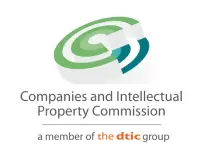On the 11th December 2023, CIPC intends to implement an interface that requires clients to file Beneficial Ownership (BO) information before filing their Annual Returns. As from Monday, 11 December 2023, the Annual Return system for companies and close corporations will validate whether the Beneficial Ownership filing is up to date, and if not, provide the customer with a warning message and a link, rerouting the customer to the beneficial ownership register. Once Beneficial Ownership information has been filed, submission of Annual Financial Statements/Financial Accountability Supplements (AFS/FAS) and then Annual Return filing may commence.
With this interface being an assistive compliance process, customers may bypass the beneficial ownership filing requirement for now, to ease customers into the legislative requirement. However, from 1 April 2024, customers will not be able to file their Annual Returns until they file/submit BO declarations.
All companies (including external companies) (e.g. non-profit, private and public companies) and close corporations are required by law to file their Annual Returns with CIPC within a certain period of time every year, as such, enterprises are required to comply with beneficial ownership declaration filings during the same time period (i.e. within 30 days from incorporation date). Failure to submit BO information will result in the CIPC utilising its compliance and enforcement powers in terms of the Companies Act with regard to BO filings, to address cases of non-compliance. The CIPC may adopt administrative processes, and where necessary, litigate such infractions.
The aim of establishing the BO register is to have a repository/register of natural persons who own or exercise effective control over legal entities; to assist law enforcement with relevant information when it comes to their investigations of who the ultimate owners of an entity are; and to mitigate the risks identified in the national risk assessment where legal persons were identified as vehicles prone to abuse for money laundering and terror financing activities.
The CIPC Commissioner, Adv. Rory Voller, encourages customers not to view the implementation of BO filing as a punitive measure, but rather as a collective effort of enterprises to support the elimination of financial crime. “It is important that the rights and responsibility of every individual stakeholder in tackling corruption is highlighted. Corruption affects all areas of society. Preventing corruption unlocks progress towards economic growth, creates jobs, and secures wider access to essential social services; ultimately promoting a culture of accountability and governance”, he said.
He continued to say that while combatting corruption is hard, it is possible if we all play our part. Every stakeholder in the private and public sector – has a role to play to prevent and counter corruption, in order to promote integrity in the South African economy, as well as promoting South Africa as an investor friendly destination.
Beneficial ownership has the following benefits for the country:
- The numerous benefits for our economy in knowing who owns whom will make our economy investor friendly, and the cost of capital to be reasonable.
- When there are contraventions of the country’s laws, law enforcement agencies will be able to easily source information about real/beneficial owners of the relevant entities.
More information and a step by step guide on beneficial ownership is available on the CIPC website www.cipc.co.za. For any further enquiries, kindly log a ticket via www.cipc.co.za/ enquiries.
Ends
